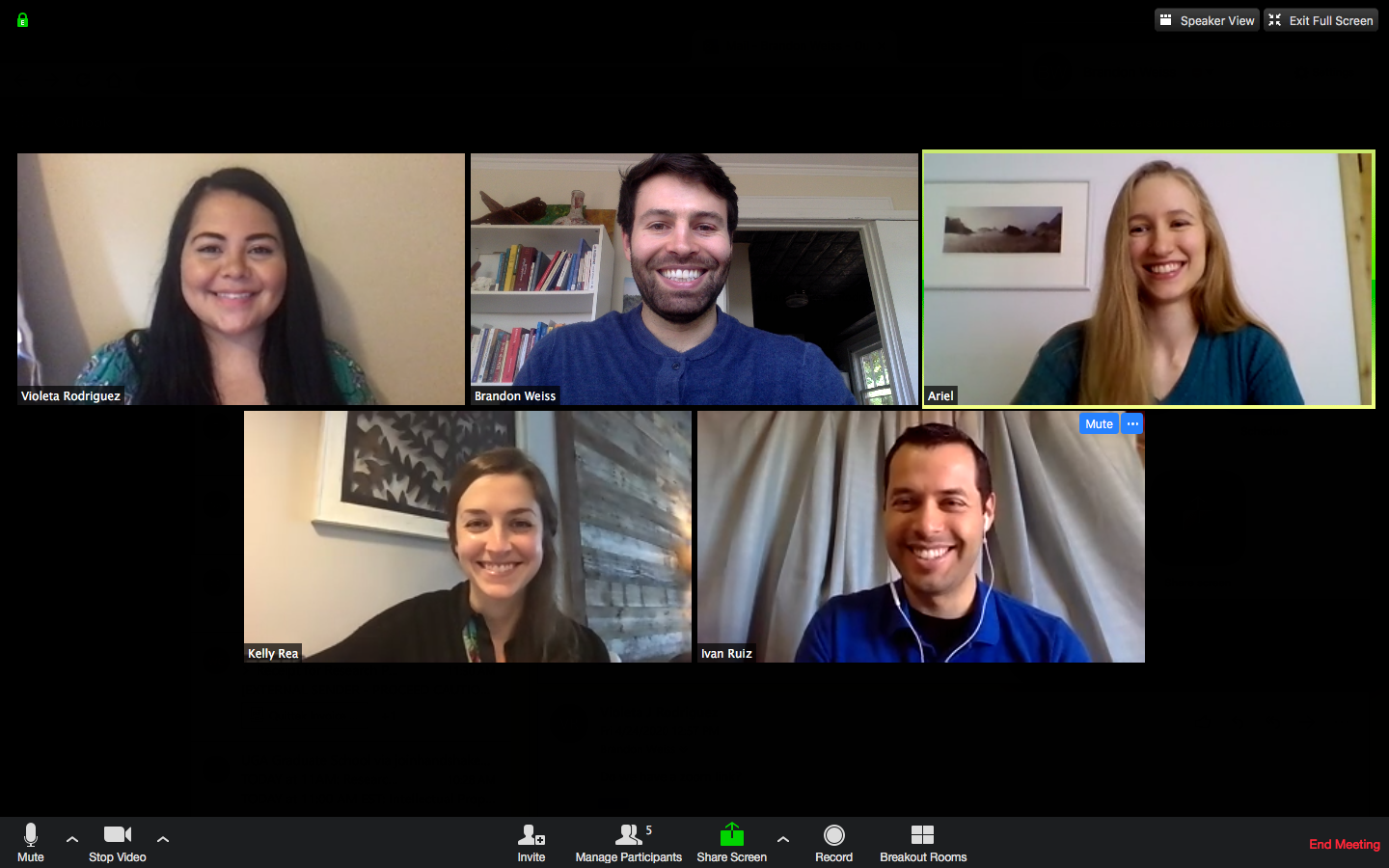In mid-March, University of Georgia graduate student Brandon Weiss and a friend were on the phone discussing the ramifications of the COVID-19 pandemic—increasing unemployment, growing health concerns and rising anxiety. During the conversation, he had an idea: What if there was a guide containing mental health information and resources for those struggling with significant life changes during the COVID-19 pandemic?
That idea is now the COVID-19 Well-Being Guide, co-authored by Weiss and a team of his fellow graduate students in clinical psychology.
Well before the virus made its way to Georgia, Weiss was aware of the issues facing people living in places where it had been found. His family lives on the West Coast, where COVID-19 first entered the United States. People in their communities were dealing with the kinds of stress that can lead to the emergence or worsening of mental health symptoms: threat of becoming ill or dying, the pressures of self-quarantine, stressor-induced relationship conflict, and the hardships associated with economic insecurity.
As a doctoral student in clinical psychology, Weiss also was familiar with the literature documenting the links between financial adversity and mental health as well as the mental health effects of other coronavirus outbreaks—SARS in 2003 and MERS in 2015. He contacted his fellow graduate students and found four who wanted to help: Ariel Hart, Kelly Rea, Violeta Rodriguez and Ivan Ruiz.
“When we started this project, it was when people were starting to grow concerned and stressed about the ramifications of it,” said Weiss, who is earning a Ph.D. in the Franklin College of Arts and Sciences. “We felt really motivated to do this work, and I think it’s because we sympathize with what other people are going through.”
Weiss had a broad-based idea of the guide’s structure, and the team collaborated to bring it to life. The content includes:
- a description of symptoms
- evidence-based ways to improve mental health and sense of well-being
- how to talk to children during the COVID-19 pandemic
- resources for the UGA community and beyond
A portion of the guide is in a worksheet format, which promotes engagement with the materials and helps users personalize their experience, according to Weiss.
“If people are in the throes of a negative mood state and experiencing mental health issues—depression, anxiety, just general disturbance—it could be helpful for them to orient to something that can be regarded as a source of hope and work toward getting on the other side,” he said.
The guide begins by normalizing the feelings that people are experiencing, according to Weiss. The action plan addresses behaviorally what people can do to mitigate their symptoms. The cognitive section covers how people can think differently about their thoughts and evaluate if their fears—getting sick, for example—are reasonable.
“That reflects the paradigm that we learn within our clinical science program. We use other approaches as well, but we primarily use cognitive-behavioral approaches,” Weiss said. “We tried to create it in a way that was really accessible to a broad range of people across many levels of functioning and demographics. We wanted it to be accessible to people at different levels of mental health severity, too.”
As graduate students in a program accredited by The Psychological Clinical Science Accreditation System, Weiss and his fellow students are trained in scientific approaches to understanding mental health problems, according to Cynthia Suveg.
“One goal of PCSAS is to disseminate scientific knowledge to improve the overall well-being of others while decreasing mental health problems,” said Suveg, associate professor in clinical psychology. “The COVID-19 well-being guide put together by our students is a reflection of this goal. It is remarkable that during a time of uncertainty and stress for students, they took the time to put together this resource to benefit others in our community.”
For Weiss, helping to create the guide had some therapeutic benefits.
“What we do for clients is what we should do for ourselves,” he said. “It helped me to understand what the effects of this are and what they’re not, and that can contribute toward a sense of control.”


